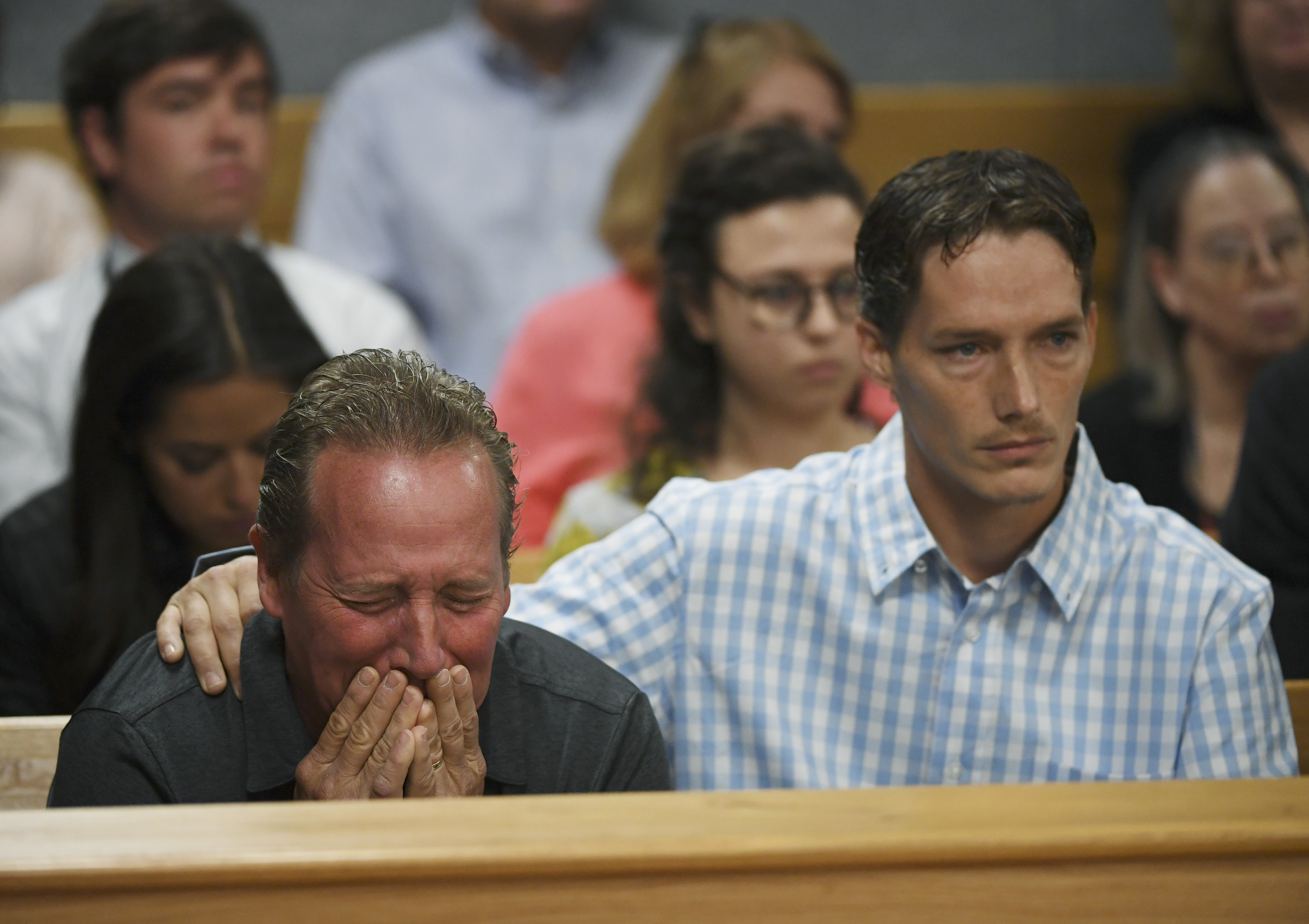

Frank Rzucek Sr. leaned forward in a Colorado courtroom, weeping with his face in his hands as his son-in-law, just feet away, was told Tuesday he could face the death penalty if convicted of killing Rzucek's daughter and two granddaughters.
Collecting himself, Rzucek glared as that son-in-law, Christopher Watts, was escorted back to jail.
The brief hearing came a day after court documents revealed that Watts told police that it was Rzucek's daughter, Shanann Watts, who strangled the kids after he told her he wanted a separation.
Watts told police that he flew into a rage and strangled his wife, took the three bodies to a remote oil site, buried Shanann in a shallow grave and dumped the girls' bodies inside nearby oil tanks.
- Aug. 20: Watts Alleges He Killed Wife After She Strangled Their 2 Daughters
- Aug. 17: Deaths Of Frederick Mother, Daughters Leaves Many At A Loss
- Aug. 16: Husband Arrested, Denied Bail In Deaths Of His Wife, Daughters
Rzucek's silent angst dominated Tuesday's routine court hearing in which Christopher Watts, wearing an orange jail suit and cuffed at the wrists and ankle, stoically answered, "Yes sir," as District Judge Marcelo Kopcow told him he could face life in prison or the death penalty if convicted of killing Shanann, 34, and their daughters Celeste, 3, and Bella, 4.
Shanann's brother, Frank Rzucek Jr., rubbed his father's shoulders and glared unflinchingly at Watts. A deputy stood between the men and the suspect.
Watts didn't enter pleas to three first-degree murder charges, two counts of killing a child under 12, one count of unlawful termination of a pregnancy and three counts of tampering with a deceased human body. A status conference was set for Nov. 19.
GPS coordinates provided by the Frederick Police Department suggest the bodies were found at an oil work site on or near a sprawling ranch close to the hamlet of Roggen, a high plains town about 40 miles east of the family home in Frederick.
The oil site was not clearly visible Tuesday from the borders of the ranch, set in grazing land with sagebrush, yellow wildflowers and the occasional cottonwood tree. Gates to the property were closed, and the ranch owner did not immediately respond to a telephone message.
Watts worked as an operator for Anadarko Petroleum, a major Colorado oil and gas producer. He was fired the day of his arrest on Aug. 15.

Police first visited the Watts home on Aug. 13, after a friend asked officers to check on Shanann. Police searched the house and found the woman's cellphone stuffed inside a couch. Her purse was in the kitchen and a suitcase was at the bottom of the stairs.
A detective spoke to Watts and learned about his plan to leave his wife. Watts told officers the conversation with Shanann was civil at first but that later "they were both upset and crying" and she planned to go to a friend's house, court papers said.
When she and the girls did not return home Aug. 14, investigators ramped up their efforts with help from the FBI and Colorado Bureau of Investigation. Christopher Watts was interviewed by several local television stations, saying he missed his family.
In court papers, investigators said they learned that Watts was "actively involved in an affair with a co-worker," something he first denied.
Separate documents filed by Watts' defense attorney last week said the girls' bodies were submerged in crude oil for four days before police found them late Thursday.
Shanann's social media accounts are filled with photos and videos of the girls playing with their father and the couple smiling. They married in North Carolina nearly six years ago and moved to Colorado soon afterward.
The judge also said Tuesday the unlawful termination of pregnancy charge carries penalties between 16 years to 48 years in prison.
Prosecutors in Colorado have 60 days after someone is arraigned to say if they will seek the death penalty. No date has been set for Watts' arraignment and District Attorney Michael Rourke said Monday that it was too early to discuss if he will pursue the death penalty.
Shanann Watts had told family and friends she was expecting a boy. Colorado is one of 12 states without a law broadly allowing for homicide charges in the violent death of fetuses, but state lawmakers in 2013 made the unlawful termination of pregnancy a felony offense.
Several efforts to change state law to allow murder charges in the death of a fetus have stalled, amid disagreement about how to pass such a law without infringing on abortion rights.
As the district attorney of Boulder County, Stan Garnett remembers receiving dozens of calls and letters as his office prosecuted a woman accused of cutting open a pregnant woman's belly and removing her unborn daughter. Garnett said a murder charge is impossible in Colorado unless prosecutors can show a fetus lived outside of its mother before death.
A case involving the death of a fetus is inevitably controversial, but for prosecutors "all that matters is what the law is and what the evidence is," Garnett said.








